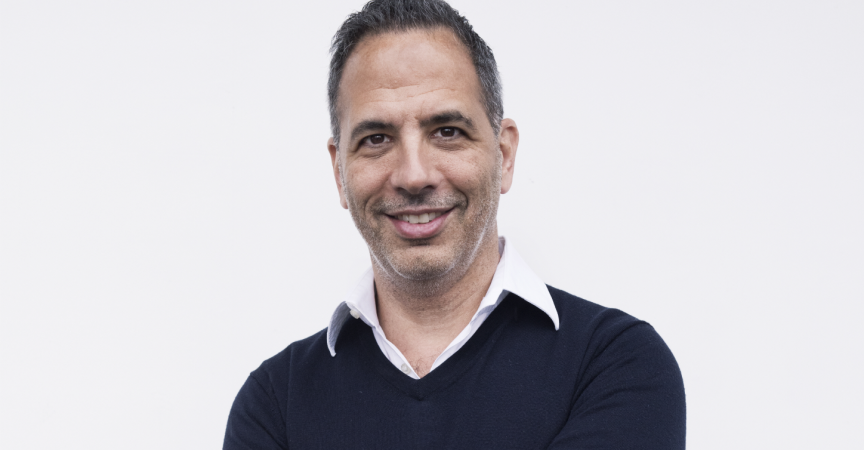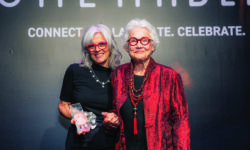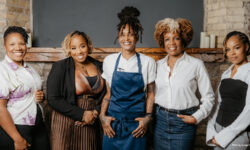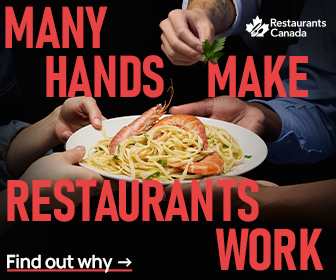A sitdown with Chef Yotam Ottolenghi
Photos by Jonathan Lovekin
As world-famous Yotam Ottolenghi sits on stage, the UK-based chef looks comfortable. He begins by reminiscing about being in the same room at George Brown College’s Centre for Hospitality and Culinary Arts a few years ago. Only this time, he notes, he is seated on the right rather than the left, and the cover of his new cookbook is being projected on the wall behind him. Equally beloved food writer and friend of Ottolenghi, Bonnie Stern, is sitting next to him. She too begins by reflecting on her beginnings in the food industry.
Just like Stern, Ottolenghi was on his way toward a completely different career when he decided to enrol at Le Cordon Bleu in London. He laughs when recounting that although his dad didn’t want him to change paths, he read his cookbook several times (but would not read Ottolenghi’s thesis on the philosophy of the photographic image). “I am glad I took this year break to go to culinary school rather than doing a Ph.D.,” he says.
Ottolenghi’s first job in a kitchen was as a pastry chef. He remembers how underwhelming the reactions were when he hand-delivered copies of his thesis to his friends and family. Yet, the first time he made brownies and handed one to a staff member, he saw their eyes open with excitement as his peer exclaimed: “Man this is the best brownie I[’ve] ever had!” He recalls: “It was such a big reaction! This and the immediate gratification, that’s why I stayed in this industry.”
Ottolenghi didn’t just open five famous and successful delis and restaurants in London—when he asks the audience of foodies and chefs gathered at George Brown to meet him who has been to one of his establishments in the UK, an astonishing 60 per cent of the room raised their hands. He has also popularized vegetarian cooking through his bestselling cookbooks Plenty and Plenty More while bringing to light Middle Eastern and European ingredients with another bestselling cookbook Jerusalem. These subjects come from his heritage. Born and raised in Jerusalem, Ottolenghi includes in his pantry some rather uncommon staples for the Western world. Think barberry seeds, rose harissa and za’atar. He speaks about the importance of top-quality tahini and suggests tasting different brands like you would do with olive oil or other staple ingredients until you find the best one. He also declares with conviction: “No you can’t make your own za’atar!” The herbs needed to make true za’atar don’t grow in most of the world including Canada.
His new cookbook Simple, compared to what he usually cooks and publishes, seems like an anomaly. When he was asked to pull together 10 easy and quick-to-cook recipes, Ottolenghi recalls answering: “I don’t do simple.” As the room laughs, he explains, “my focus was always flavour!”
He went back to his test kitchen almost panicked about the request. But as he started throwing ideas to his team, he realized that in only 10 minutes he already had 10 recipe ideas to test out. The most surprising part to him was how good the dishes tasted.
Ottolenghi says jokingly that he simply
never realized that most people’s lives don’t revolve around the kitchen with
plenty of time to shop and prep. In all seriousness, he put himself in the
shoes of somebody that doesn’t have the time and the skills he has, and he
created flavourful dishes with one constraint: they had to be simple.
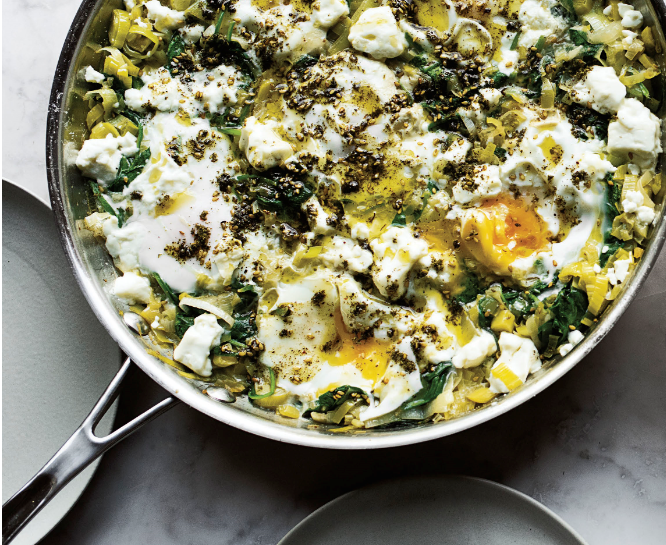
The definition of a simple recipe according to Ottolenghi:
S short in time
I ingredients: 10 or fewer
M make ahead
P pantry-led
L lazy-day dishes
E easier than you think
What were some of Ottolenghi’s parting bits of wisdom?
He tells us to read
“I have so many cookbooks, it is always hard to pick a favourite,” he says. He uses different ones depending on what he is looking for and which style he is in the mood for. He appreciates good recipes but also interesting narratives and original photography.
How to Eat by Nigella Lawson
The New Vegetarian Cooking for Everyone by Deborah Madison
Ripe for Dessert by David Lebovitz
Leiths Cookery Bible by Prue Leith and Caroline Waldegrave
Don’t buy luxury ingredients
“Simple flavours are amazing,” he says. To illustrate this fact, he relates to eras gone by where people wasted nothing and had very little. Those who don’t take food for granted might buy the cheapest ingredients but take the time to make them taste delicious. Stuffed vegetables are his favourite example—there are no fancy ingredients required, and the flavours are exceptional if done well.
Today in western society is a different story, where time can be scarcer than money, which is why some people and chefs might choose to go towards more expansive and luxurious items. However, if you are in a situation where you have more time than money, you still can challenge other chef’s cuisine by putting extra time and effort into it.
Running a successful restaurant is a miracle
Although Ottolenghi has won over 17 awards, published several bestselling cookbooks, is regularly in the press as a contributor and is recognized and celebrated internationally, he says that “operating a successful restaurant is a miracle. I am lucky I am not the one making it happen anymore.” He refers to how good his team is. Restaurants are complex operations, where everything that can go wrong most likely will. He also brings attention to the growing fears that accompany Brexit. “It is a nightmare to hire now; that Europeans can’t come or work in the UK as easily as before.” He addresses his fear that his adopted country is losing what made it so strong—its diversity.
A thought Canadians can relate to.



